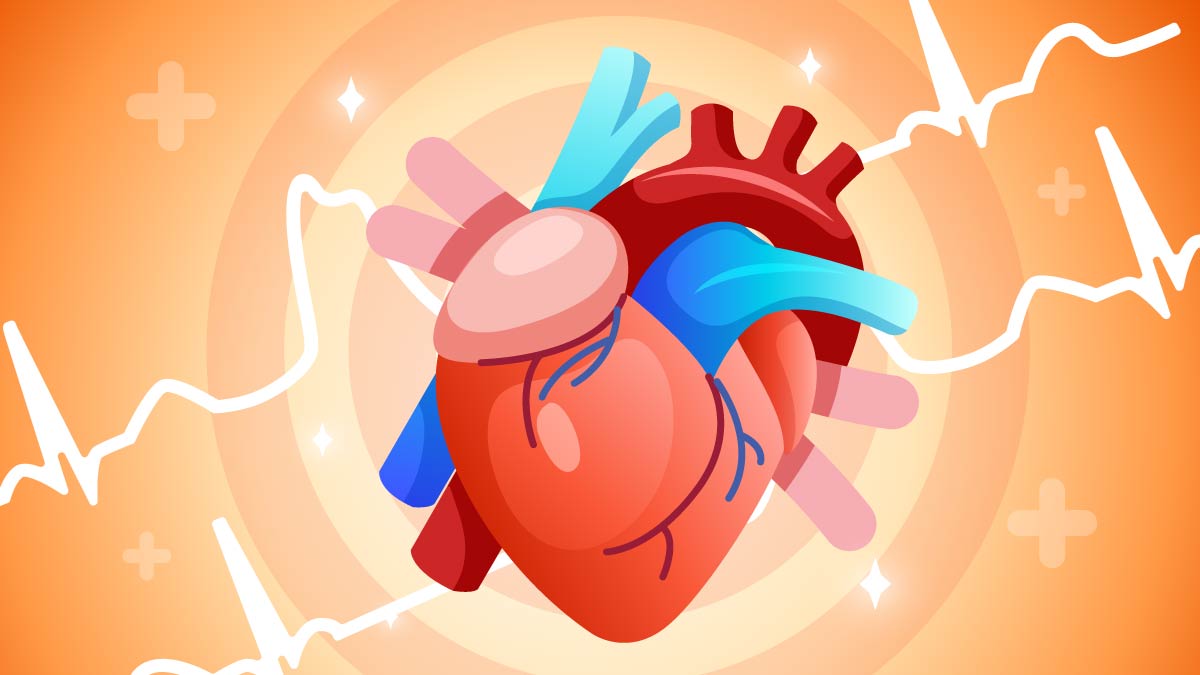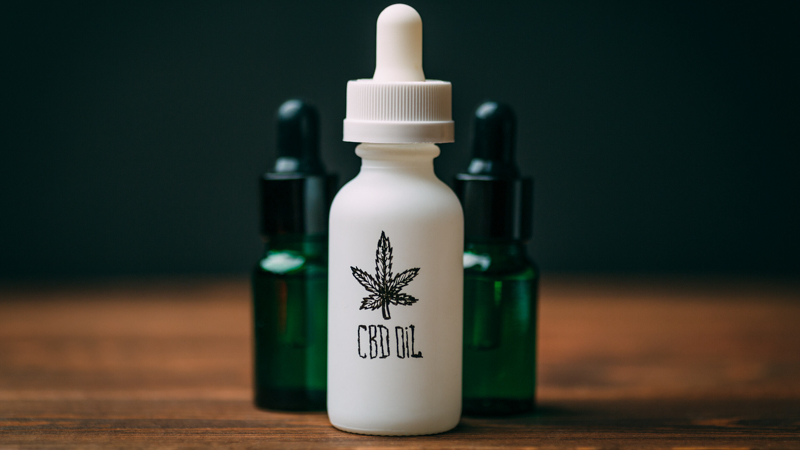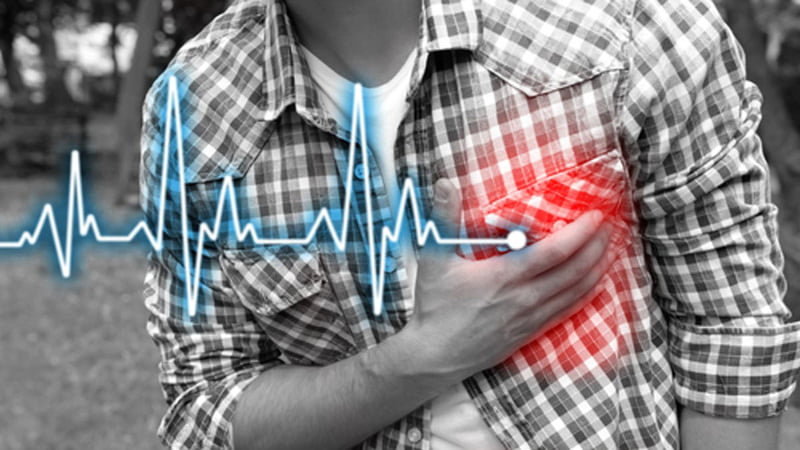CBD Oil and AFib: Can Cannabis Help With Atrial Fibrillation?

Atrial fibrillation — or AFib in short — is a condition characterized by irregular heartbeats also known as arrhythmia. When untreated, it can result in heart failure, stroke, blood clotting, and other cardiovascular problems.
It’s estimated that around 2.7 million Americans are living with AFib. Doctors typically prescribe blood thinners such as warfarin to help prevent strokes in patients with this condition.
There’s a growing body of evidence surrounding the benefits of CBD for the cardiovascular system.
Short for cannabidiol, CBD is one of many substances found in cannabis. It’s the second major cannabinoid next to THC, which is the main intoxicating ingredient in marijuana (high-THC cannabis).
Unlike THC, CBD doesn’t get you high, but instead, it helps you enjoy the plethora of health benefits associated with this compound.
In this article, we’ll leave no stone unturned exploring the use of CBD for AFib.
Does CBD Oil Help AFib?
A 2010 study posted by the British Journal of Pharmacology discovered that CBD reduced the total number of irregular, ventricular heartbeats (heart arrhythmia) in a rat model after they had a heart attack. This type of arrhythmia that doesn’t come from the atria but rather from the ventricles is different from AFib, but the said findings could be worth further analysis.
In a 2017 study, the research team learned that a single dose of CBD reduced blood pressure in male subjects. They also noted that CBD lowered blood pressure response to stress in the subject, particularly in the event of cold stress.
Elevated blood pressure is believed to increase the risk of atrial fibrillation in middle-aged men and women.
Another study investigated the theory that CBD can attenuate responses and consequences of stress in animals with anxiety.
In the meantime, experts in another study concluded that CBD inhibited several processes linked to diabetes, pointing to CBD as a potentially therapeutic substance in treating diabetes and other heart-related diseases.
That being said, there are no studies that would investigate CBD’s efficacy as a treatment for atrial fibrillation. Many studies on CBD were conducted on animal models, with only a few small studies on human subjects —butt none directly tackle the problem of AFib.
How does CBD Oil work for AFib?

CBD interacts with the major regulatory network in our bodies known as the endocannabinoid system (ECS). ECS works to promote and maintain homeostasis in the body through its receptors; for that purpose, it releases ligands known as endocannabinoids.
CBD has been found to indirectly engage with cannabinoid receptors type 1 and 2 (CB1 and CB2), but there’s also a growing body of evidence that it works on multiple pathways beyond the ECS.
One study on lab rats found that CBD’s interaction with the ECS causes it to exert cardioprotective effects in the animals. In another study, the authors reported that CBD binds to and activates the PPARgamma receptor, which has been associated with various cardiovascular illnesses.
They also noted that the activation of the said receptor-induced vascular actions in rats.
Good blood pressure control is beneficial for AFib patients. There are already safe, established medications for this condition, but CBD can add yet another choice for patients that want to treat their AFib with holistic remedies.
Potential Benefits of CBD Oil for AFib
- Some studies highlight CBD’s ability to control blood pressure, which could translate into better AFib control. The studies we’ve mentioned above noted that CBD offers benefits for the cardiovascular system and can help treat another type of arrhythmia but — not AFib specifically.
- There is evidence that CBD can reduce hypertension, a condition that causes atrial fibrillation.
- CBD doesn’t have intoxicating properties, so it won’t get you high, unlike THC.
- CBD is federally legal and you can buy it without a prescription in every state.
- Public health agencies such as NIH and the FDA acknowledge CBD’s potential therapeutic uses.
- The WHO issued a case report where they reviewed several clinical trials investigating the efficacy and safety of CBD. The report concluded that CBD is safe and well-tolerated, even when taken in large amounts.
What Are the Limitations of Using CBD Oil for AFib?
- Most of the studies on CBD were conducted on animal models. There are currently no clinical human trials on the use of CBD for AFib. The effects have not been directly studied with regards to this condition.
- The only FDA-approved use of CBD is for epilepsy — and it’s not even CBD oil but synthetically isolated CBD.
- Taking CBD oil alongside other medications, especially blood thinners, can lead to negative interactions. In the case of CBD and blood-thinners, the cross-interaction could trigger bleeding, so always talk to your doctor before taking CBD.
- The CBD market is unregulated and thus there are many mislabeled products sold online. People choosing to buy CBD for AFib should be particularly cautious of who they’re buying from.
Full-Spectrum CBD vs Isolate: Which Is Better for AFib?

There’s an ongoing debate on the effectiveness of full-spectrum CBD oil vs CBD isolate for different health conditions.
Full-spectrum CBD oil contains the original phytochemical profile of the source plant, including adjunctive cannabinoids, terpenes, and trace amounts of THC (0.3% or less). These compounds work synergistically to enhance the therapeutic effects of your extract, unlike with CBD isolate — which contains nothing but pure CBD.
This means that full-spectrum CBD oil may be more effective for AFib than isolate; for that reason, the full-spectrum option is the desired type of CBD oil among the majority of consumers.
CBD isolate doesn’t have any odor and flavor. It also shouldn’t trigger a false-positive result on a drug test for THC, so if these are the reasons you avoid CBD oil, it may be a good idea to opt for pure CBD.
CBD Dosage for AFib
Since CBD isn’t regulated by the FDA, there are no official dosage recommendations from health agencies. This, in turn, makes it difficult for new consumers to know how much CBD oil they should take to relieve their symptoms and improve overall health.
If you want to figure out the optimal dosage for your individual situation, it will require some trial and error. The good news is that you can take a look at the past studies on CBD and cardiovascular health to compare different dosages and try them out on yourself.
It’s best to start low and slowly increase your dose until you find the amount that provides the expected results.
How to Take CBD for AFib?
Taking CBD oil or vaping CBD extracts are the fastest ways to administer CBD to those with AFib.
Sublingual use (under the tongue) provides relatively high bioavailability and a fast onset of effects. Bioavailability refers to the leftover amount of CBD that your body can use after being metabolized in the digestive tract.
Meanwhile, vaping CBD delivers it to your bloodstream through the lung tissue, so by way of inhaling it you can feel the effects almost instantaneously.
That being said, not everyone is comfortable with vaping, especially if they have AFib. Taking CBD by way of gummies or capsules is an easy way for non-vapers to take CBD oil.
Some brands also sell CBD oil as topicals. These formulations can be used for massage therapies to help people unwind and relax.
Dosage-wise, it’s best to purchase CBD oil because they come with droppers that allow for easy and correct application of the right amount of CBD.
Understanding Atrial Fibrillation

Atrial fibrillation is the most prevalent type of erratic heartbeat that people can experience. Some of the risk factors of AFib include high blood pressure, obesity, age, and existing heart disease.
Despite being associated with irregular electrical impulses, the exact cause of AFib remains unknown to scientists.
The symptoms of Afib include:
- Chest pains
- Dizziness
- Fatigue
- A feeling of fluttering in the chest
- Faintness
- Sweating
- Shortness of breath
- Rapid and abnormal heartbeat
- Weakness
Different Types of Atrial Fibrillation
Medical researchers have outlined at least five types of AFib that can be distinguished based on their underlying causes and duration:
- Paroxysmal fibrillation – this condition occurs when a person’s heart returns to normal with or without intervention within a week after its beginning. People with this type of AFib may go through such episodes a few times each year — or even daily.
- Persistent AFib – this type of AFib refers to an abnormal rhythm of the heart that lasts more than one week. It doesn’t return to normal without treatment.
- Long-standing AFib – it happens when the heart is continuously in an erratic rhythm, lasting more than one year.
- Permanent AFib – in this case, the disorder lasts indefinitely, with the patient and doctor deciding to discontinue treatment.
- Nonvalvular AFib – this form of AFib isn’t triggered by a problem with the heart valve.
How Does the Heart Rehabilitate from AFib?
Cardiac rehabilitation is a paramount process for people recovering from heart surgery or heart muscle failure. This program requires medical supervision of your physical activity, education about healthy lifestyle choices, and mental health counseling. Anyone with AFib or any other cardiovascular problem can take part in cardiac rehab.
The program offers many benefits to a person’s health, such as:
- Strengthening the body after a heart attack
- Relieving chest pain and other symptoms of heart problems
- Reducing stress
- Learning healthier habits
- Enhancing moods
- Improving motivation
- Preventing future cardiovascular issues.
You can sign up for cardiac rehabilitation in a health center or your local hospital. Some programs are implemented in the patient’s home.
Summarizing the Use of CBD for AFib
CBD can exert therapeutic effects on arrhythmic hearts and thus help with atrial fibrillation. Although no direct study implicated this, preliminary studies on animal models of heart diseases have shown that CBD can reduce blood pressure and the total number of irregular, ventricular heartbeats in people after heart attacks.
Abnormal heart rhythm and hypertension are the most probable underlying causes of AFib and require medical care.
CBD is said to interact with receptors of the ECS, which is the believed reason for its cardioprotective properties. Scientists have also observed CBD’s interactions with other receptors outside the ECS.
More clinical trials on humans regarding the use of CBD for AFib are needed, but current evidence holds promise for its potential use as a holistic treatment.
Do you believe in CBD’s cardioprotective effects? How do you take CBD oil to improve your heart health?
References:
- Walsh, S. K., Hepburn, C. Y., Kane, K. A., & Wainwright, C. L. (2010). Acute administration of cannabidiol in vivo suppresses ischaemia-induced cardiac arrhythmias and reduces infarct size when given at reperfusion. British journal of pharmacology, 160(5), 1234–1242. (1)
- Jadoon, K. A., Tan, G. D., & O’Sullivan, S. E. (2017). A single dose of cannabidiol reduces blood pressure in healthy volunteers in a randomized crossover study. JCI insight, 2(12), e93760. (2)
- Granjeiro, E. M., Gomes, F. V., Guimarães, F. S., Corrêa, F. M., & Resstel, L. B. (2011). Effects of intracisternal administration of cannabidiol on the cardiovascular and behavioral responses to acute restraint stress. Pharmacology, biochemistry, and behavior, 99(4), 743–748. (3)
- Horváth, B., Mukhopadhyay, P., Haskó, G., & Pacher, P. (2012). The endocannabinoid system and plant-derived cannabinoids in diabetes and diabetic complications. The American journal of pathology, 180(2), 432–442. (4)
- Fouad, A. A., Albuali, W. H., Al-Mulhim, A. S., & Jresat, I. (2013). Cardioprotective effect of cannabidiol in rats exposed to doxorubicin toxicity. Environmental toxicology and pharmacology, 36(2), 347–357. (5)